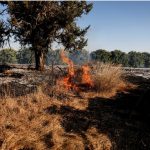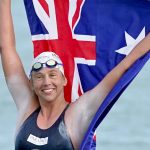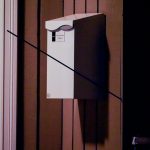A major laboratory in Australia incorrectly told 400 people their coronavirus test result was negative on Christmas Day, when they had actually tested positive for the virus.
The lab responsible, based at St. Vincent’s Hospital in Sydney, sent incorrect text messages on the evening of Christmas Day telling people they did not have the virus.
The results were corrected the next morning, which the lab put down to human error.
The medical director of the laboratory said an emergency response team had been set up to investigate the cause of the mistake, which is believed to have been partly due to the increased pressure of processing a high volume of tests.
It comes as coronavirus cases reach record levels in Australia.
Nearly 10,000 cases were recorded across the country on Christmas Day, the majority of which were in New South Wales, where the St Vincent’s lab is located.
It is believed many of these cases are likely to be the Omicron variant, although a lack of genomic sequencing in New South Wales means officials cannot be certain.
Bouncy castle deaths: Sixth child killed in Tasmanian school tragedy is named by Australian police
Bouncy castle deaths: Australia police name five children killed in tragedy at school – as heartbroken families pay tribute
Millipede with 1,306 legs found in Australia – most of any known animal
New South Wales health minister Brad Hazzard indicated that Omicron is widespread and that avoiding infection would be difficult.
“We would expect that pretty well everybody in New South Wales at some point will get Omicron,” he said.
“If we’re all going to get Omicron, the best way to face it is when we have full vaccinations including our booster.”
Despite the record case numbers, infections in Australia are currently less than a quarter of what they are in the UK when adjusted for population size.
As of 22 December almost 91% of over 16s in Australia had received two vaccine doses and New South Wales had the highest vaccination rate amongst the six Australian states.
Much fewer people have received a booster dose, but Australia is now cutting the length of time between getting a second jab and a booster.
People over the age of 18 who had their second dose more than four months ago will be eligible for a booster from 4 January, with the gap reduced again to three months from 31 January.






















